Anastasia Zhilyakova, Aleksandra Ortyakova
6 Stages of Change
Change begins with yourself
How many times have you woken up in the morning and said to yourself: from tomorrow, or better from Monday, or better from January 1, but I will definitely change my life? Do not count — you will lose your way. I won't ask how often you managed to stick to the original plan to the end.
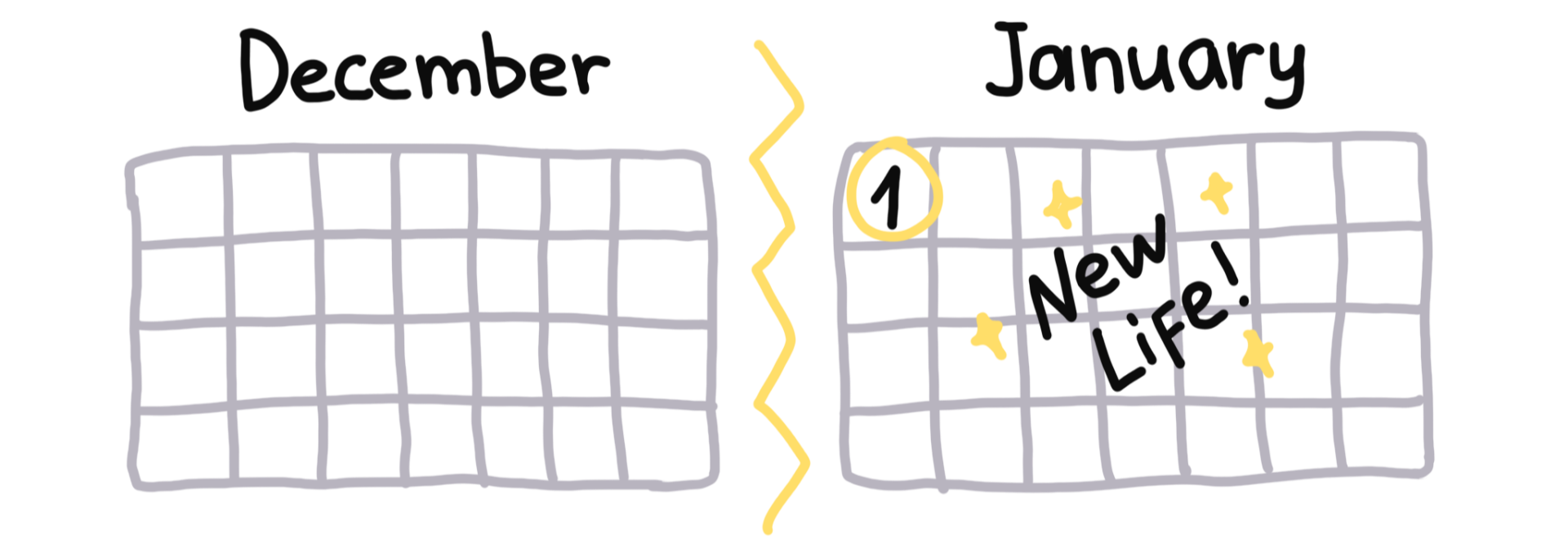
Do you think you lacked willpower?
No, you lacked knowledge.
No, you lacked knowledge.
Lasting change generally proceeds through six key stages:
From Precontemplation to Contemplation, then to Preparation and Action. But that’s only the beginning, and we can easily coast right back into preparation or contemplation if we lose our nerve, focus, or steam.
For our behavior change to prove sustainable, it must enter a Maintenance phase (generally, six months or more of consistent action) until it finally becomes ingrained as a stable habit.
This final, ongoing phase is known as Termination, which implies that the change is now a permanent part of our lifestyle.
Many programs that say “just do it” ignore the complicated process of change. They tell you to start right away, skipping important steps. Sadly, those skipped steps are often the key to successful change. This is why many of us who rush into action end up failing repeatedly.
Today, we will analyze 6 stages that people go through on the way to the desired changes in themselves:
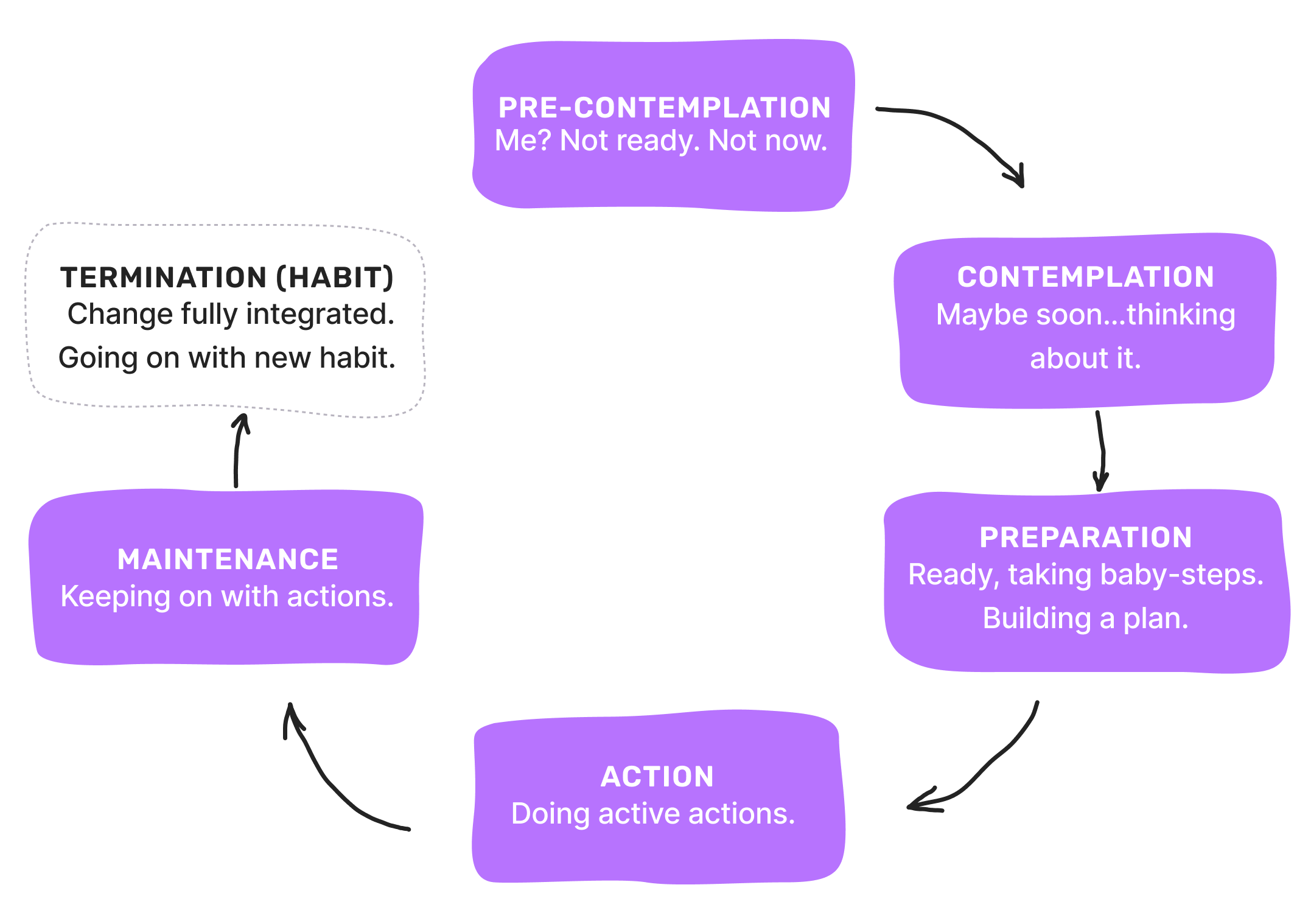
Stage 1
Precontemplation
At this stage, you may wish to change — you are told by others or your inner voice. But for the immediate future, you have no plans to do so. You’re not seriously considering doing anything about it anytime soon. It may seem like too much work, or just not your cup of tea. When someone tries to talk to you about it, you tune out, shut down or change the subject.
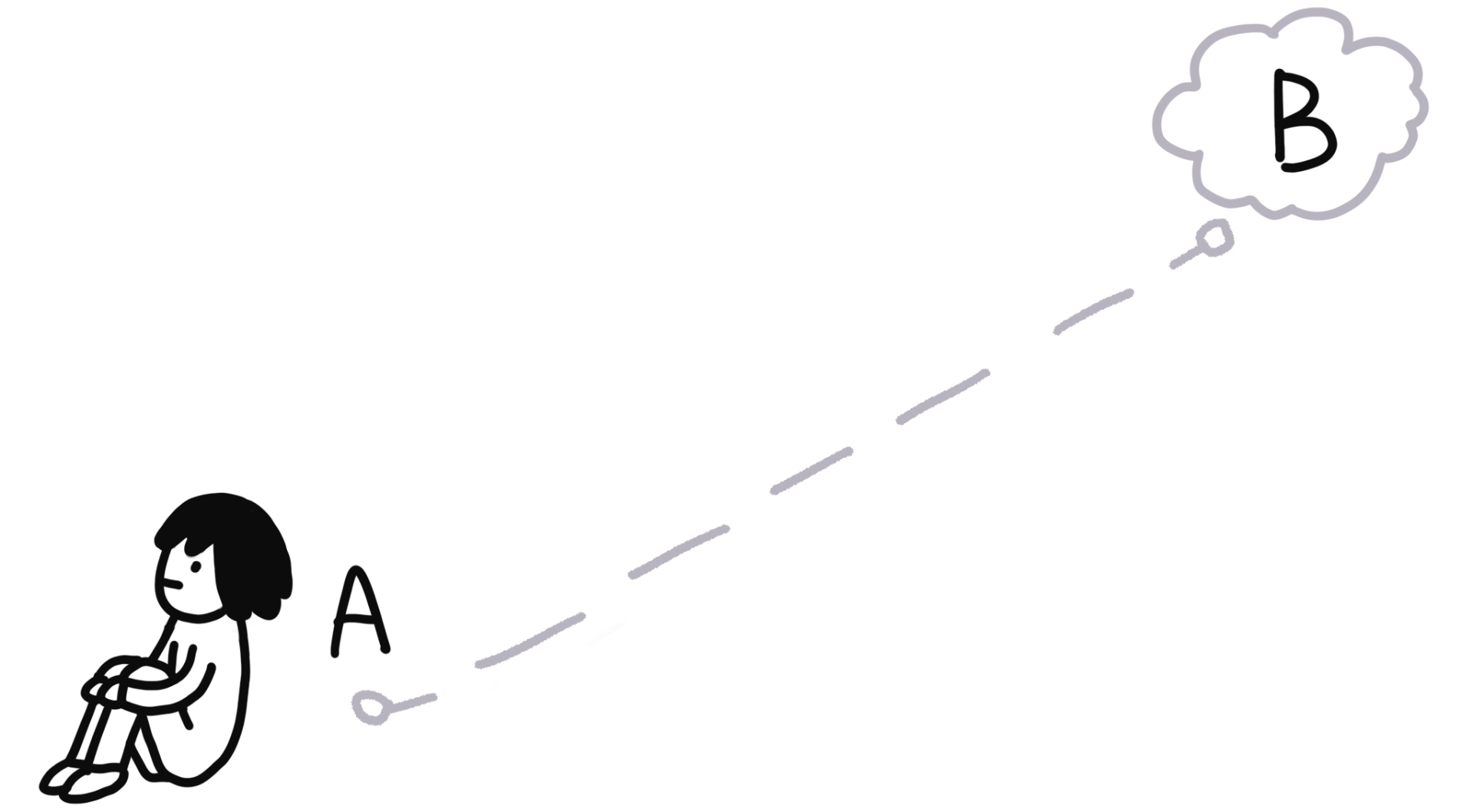
What you say to yourself:
Many people need strong motivation and radical changes to move from this stage.
- Yes, I know I need to change, but I don't want/can't/am not ready.
- I will change, but the rest of the people (and the world around me) will remain the same, then why all that?
- I have already tried to change, and in vain.
- I'm fine as I am, leave me alone.
Many people need strong motivation and radical changes to move from this stage.
Meet Anna. She takes the bus to work every day and thinks she'd be more comfortable in a car. But she doesn't have a driver's license. She's not ready to make a change right now.

What Can Hold You Back:
- A sense that making changes will be too hard or uncomfortable.
- Hopelessness from previous failed attempts.
- Limiting beliefs about what is possible or permissible for you.
What Moves You Forward:
- A positive or negative life event.
- Becoming aware of the negative consequences of not changing.
- Recognizing that benefits of changing might be worth it.
- Challenging old beliefs. Boosting self-worth and confidence.
Stage 2
Contemplation
You have overcome the first stage and reached the second. At the moment of transition, you're gaining confidence and realizing it's worth the effort — “I decided, I would change, nothing would stop me.” But the euphoria passes, and you are faced with reality: you are already ready to change. You do not understand well where to move, what to do, whether you have all the necessary resources.
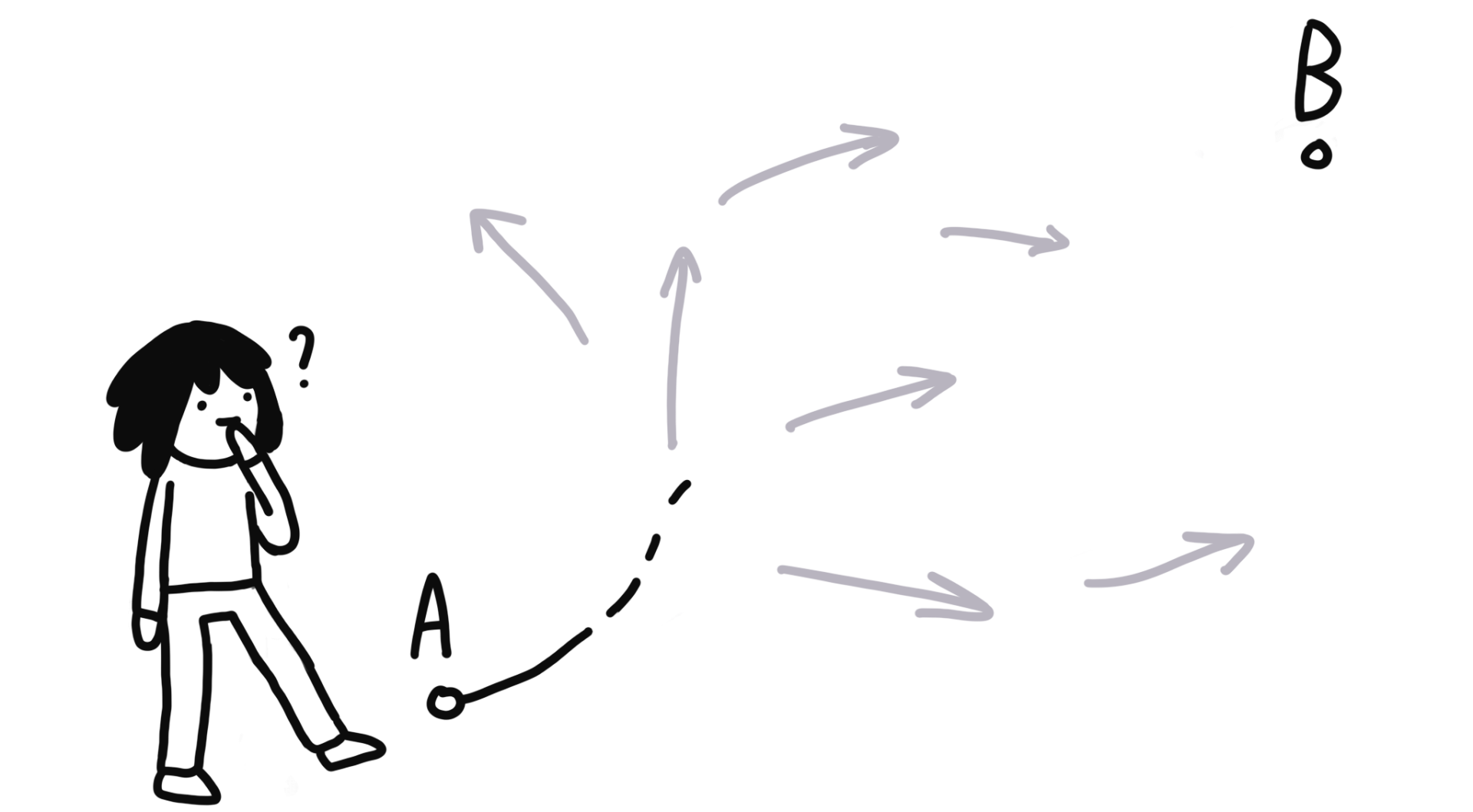
What you say to yourself:
At this stage, you lack internal balance, you are overcome by doubts about the correctness of your decision to change. You are thinking about taking action, but aren’t quite ready or don’t know how to get started. You’re open to information and feedback.
- I will change, but only to… (insert the reason that motivated you).
- I want to change, but I can't imagine how (say it like you're in a panic).
- I want to change, but what is the price? Am I ready to pay for it?
Or is it not worth it? - And why did I get involved in all this at all?
At this stage, you lack internal balance, you are overcome by doubts about the correctness of your decision to change. You are thinking about taking action, but aren’t quite ready or don’t know how to get started. You’re open to information and feedback.
Someone stepped on Anna's new white shoes on the bus. She made up her mind - "I will definitely get my driving licence this year!"
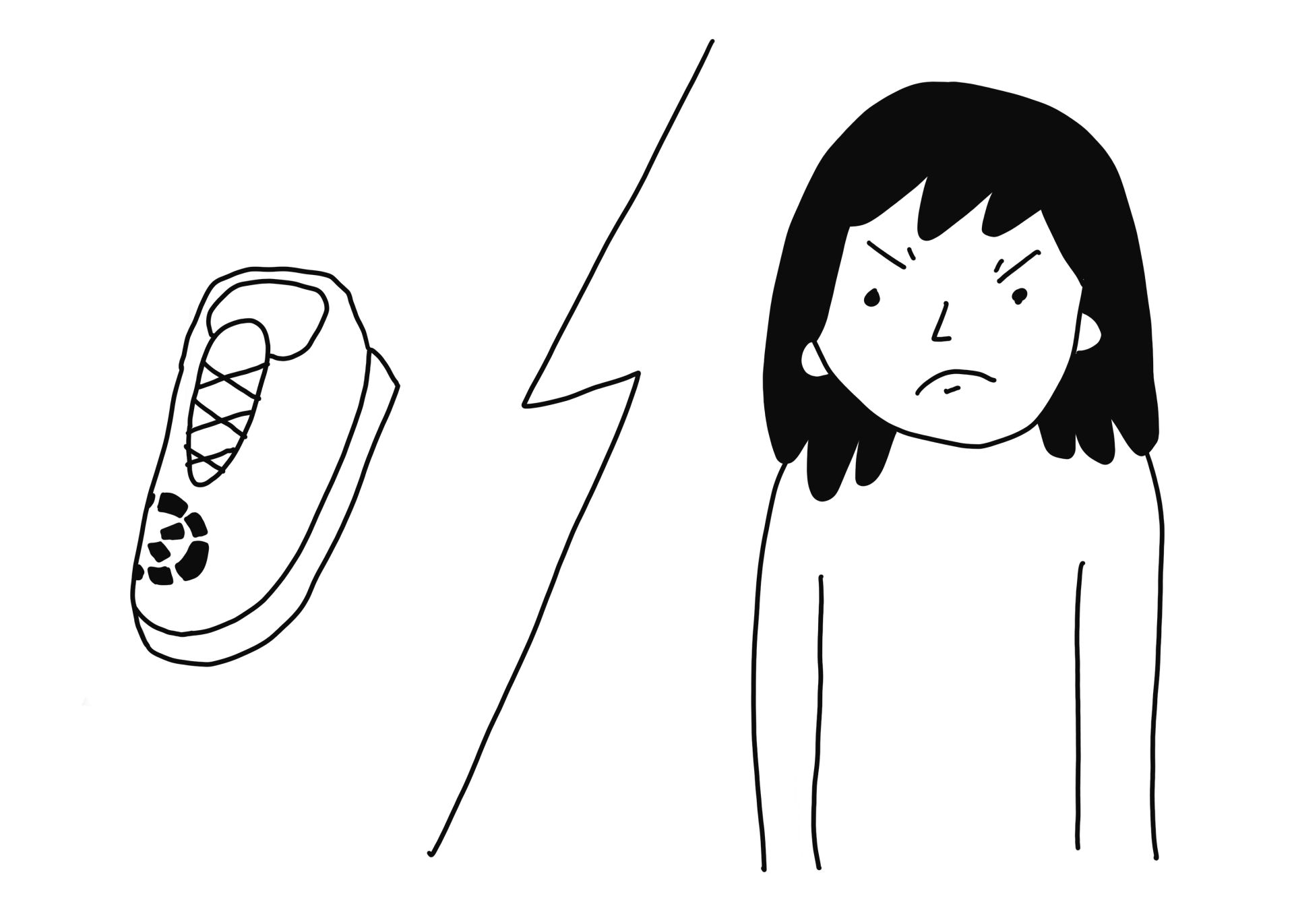
What Can Hold You Back:
- Lack of urgency or motivation.
- Difficulty balancing competing priorities.
- Fear of change.
- Feeling it's not the right time, or you're not ready for the change.
What Moves You Forward:
- Feeling excited about the possibility of a positive shift in your life.
- Connecting with core motivations.
- Being inspired by role models or success stories.
- Experiencing “last straw” negative consequences of old behaviors.
- An incentive or change in your environment.
- Learning new skills or gaining a new perspective.
Stage 3
Preparation
Do not immediately run and do, just to do something. There is one more important stage before active actions. Preparation. When you make a plan of actions, collect information, accumulate enough self-confidence through communication with more experienced people to move forward.
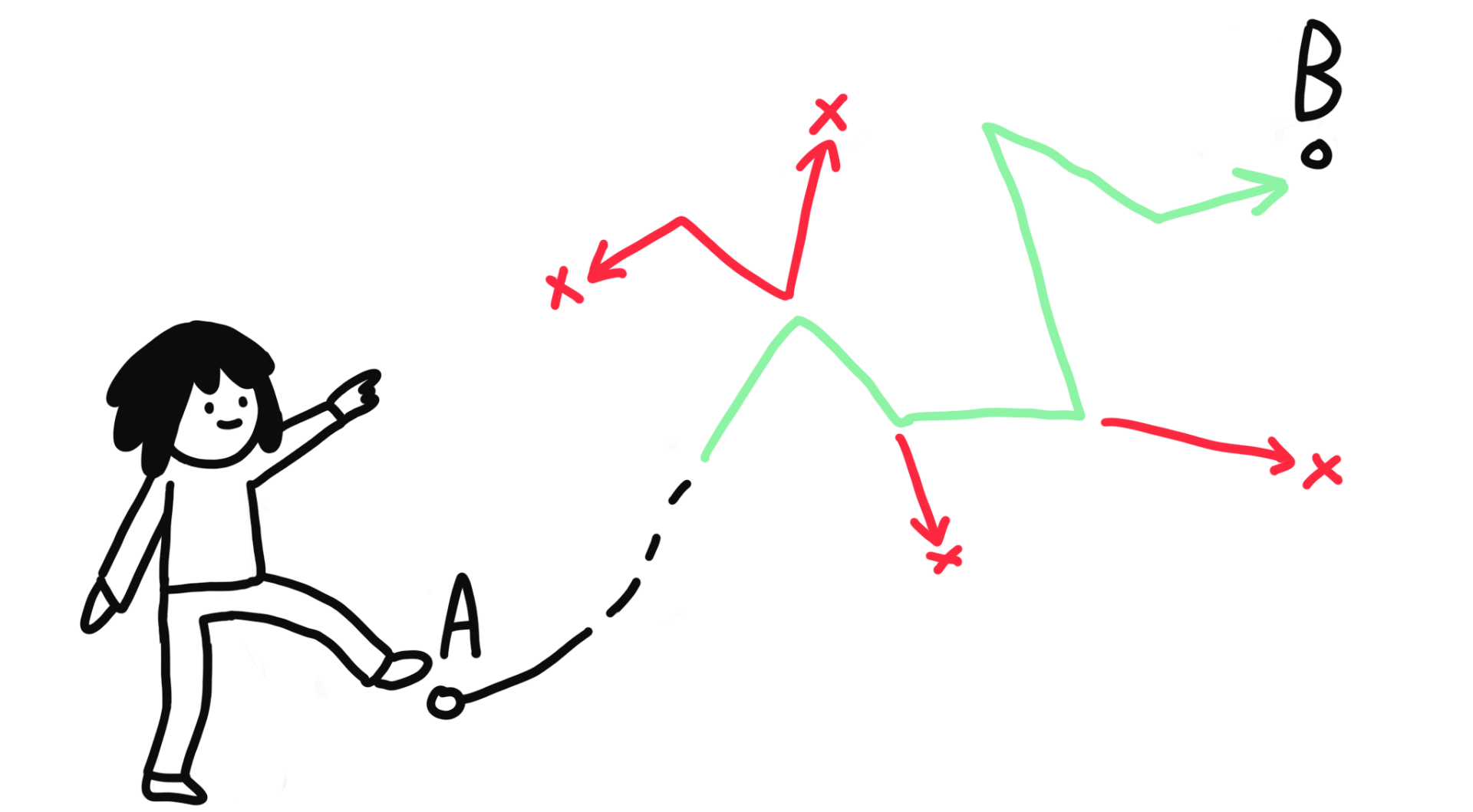
What you say to yourself:
At this stage, you are like a chicken (or, if you prefer, a dinosaur) that has to hatch from an egg. You gather all the strength, knowledge, and resources together to make a breakthrough.
People tend to get stuck in Preparation (or ricochet back and forth between it and Contemplation) when they misjudge their level of readiness or impatiently jump straight to Action. That can undermine their confidence and make them wary about trying again.
- Which way do I need to move in order to make life the way I want?
- What else am I missing to start acting?
- What exactly do I need to do to attract changes in my life?
- Do I need to act right now, or should I wait… (insert the desired time period)?
At this stage, you are like a chicken (or, if you prefer, a dinosaur) that has to hatch from an egg. You gather all the strength, knowledge, and resources together to make a breakthrough.
People tend to get stuck in Preparation (or ricochet back and forth between it and Contemplation) when they misjudge their level of readiness or impatiently jump straight to Action. That can undermine their confidence and make them wary about trying again.
Anna has researched all the schools near her home where she can learn to drive.
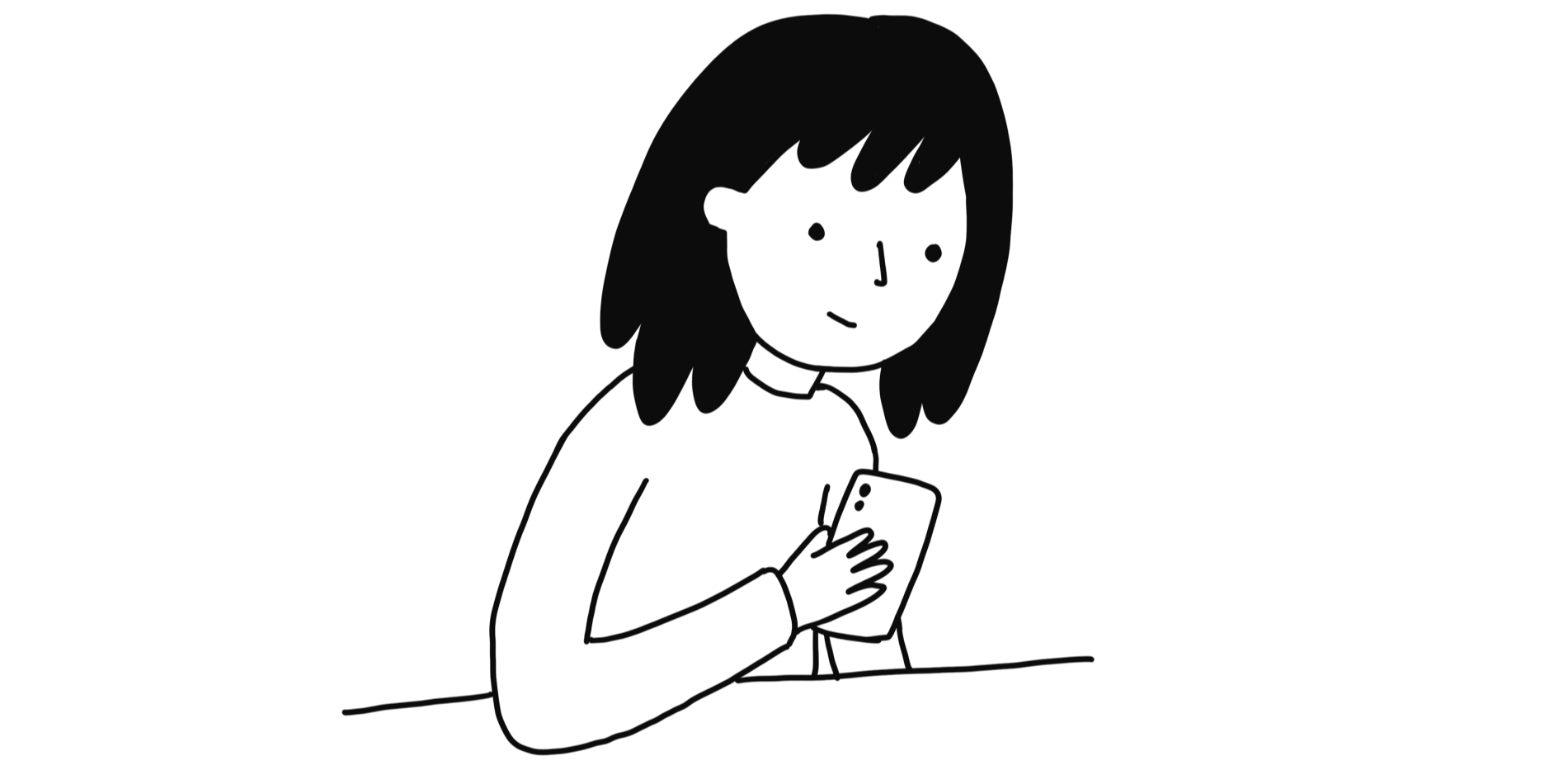
What Can Hold You Back:
- Underestimating your need to prepare, and skipping straight to the action phase without adequate skills, knowledge, or confidence.
- Being afraid to ask for or acknowledge that you need help.
- Not knowing where to turn for information and support.
What Moves You Forward:
- Taking initial steps, such as doing research, acquiring equipment, or engaging a coach or mentor.
- Establishing a start date on the calendar.
- Telling friends and family about your plan to change.
- Building excitement and confidence by accomplishing preparatory actions.
Stage 4
Action
At this stage, you begin to take small steps towards the desired changes. It may seem to you that you are putting too much effort, but there is no result. You may want to go back to the old condition. Hold on and keep going. Turn to your friends and family — they are now noticing changes in you and your life better than you.
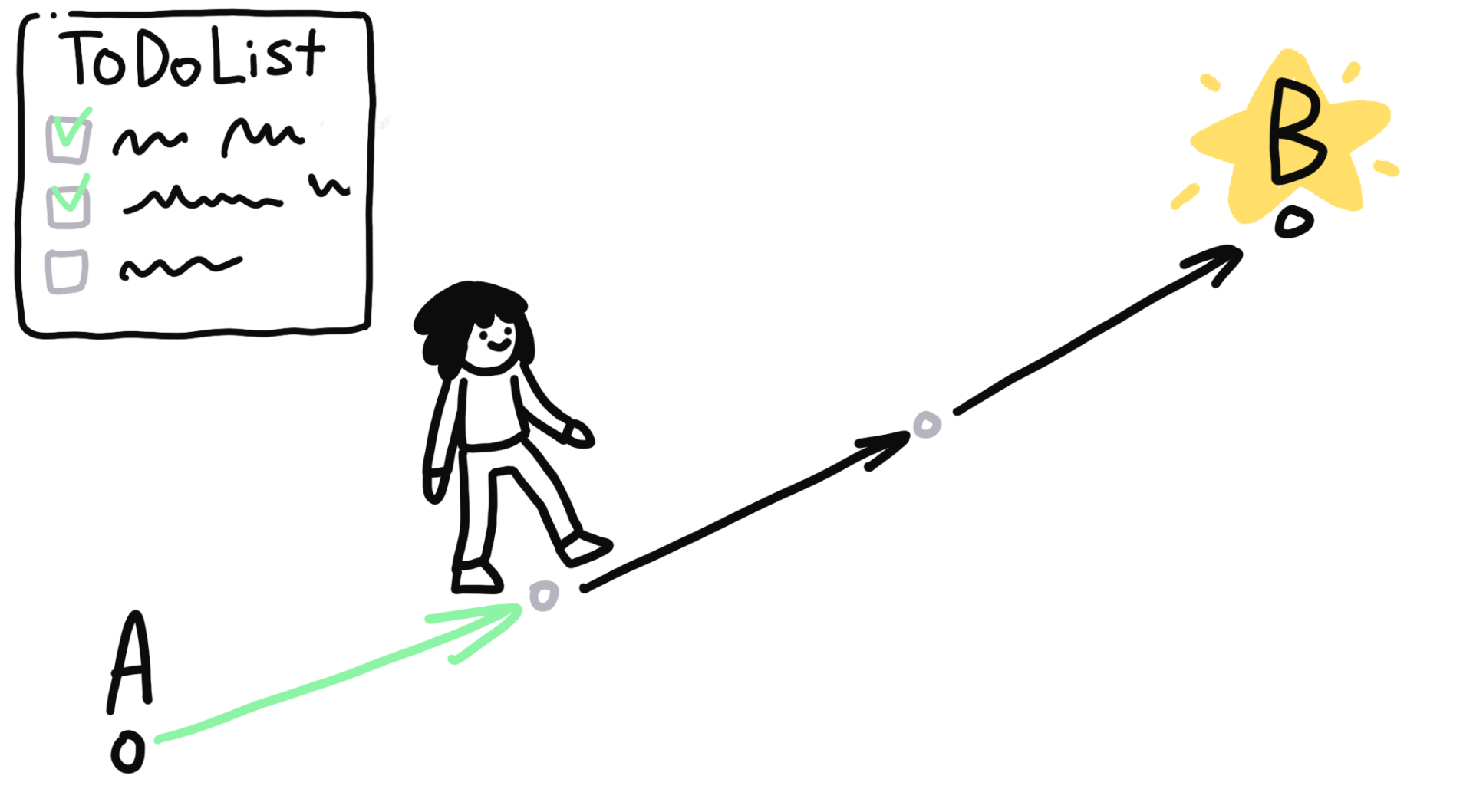
What you say to yourself:
Don't stop. Imagine that you are riding a bike up a hill — it is difficult to pedal, the speed is small. But the top is achievable — what you need is up there.
- I do so much, where is the desired result?
- Maybe I made a mistake and I need to take it all back?
- How much more do I need to do all that for my life to change?
- Am I going the right way at all?
Don't stop. Imagine that you are riding a bike up a hill — it is difficult to pedal, the speed is small. But the top is achievable — what you need is up there.
Anna has already signed up for her first lesson and is looking forward to the start of her studies. She is no longer so annoyed about the bus journey, because she knows that this will soon change.
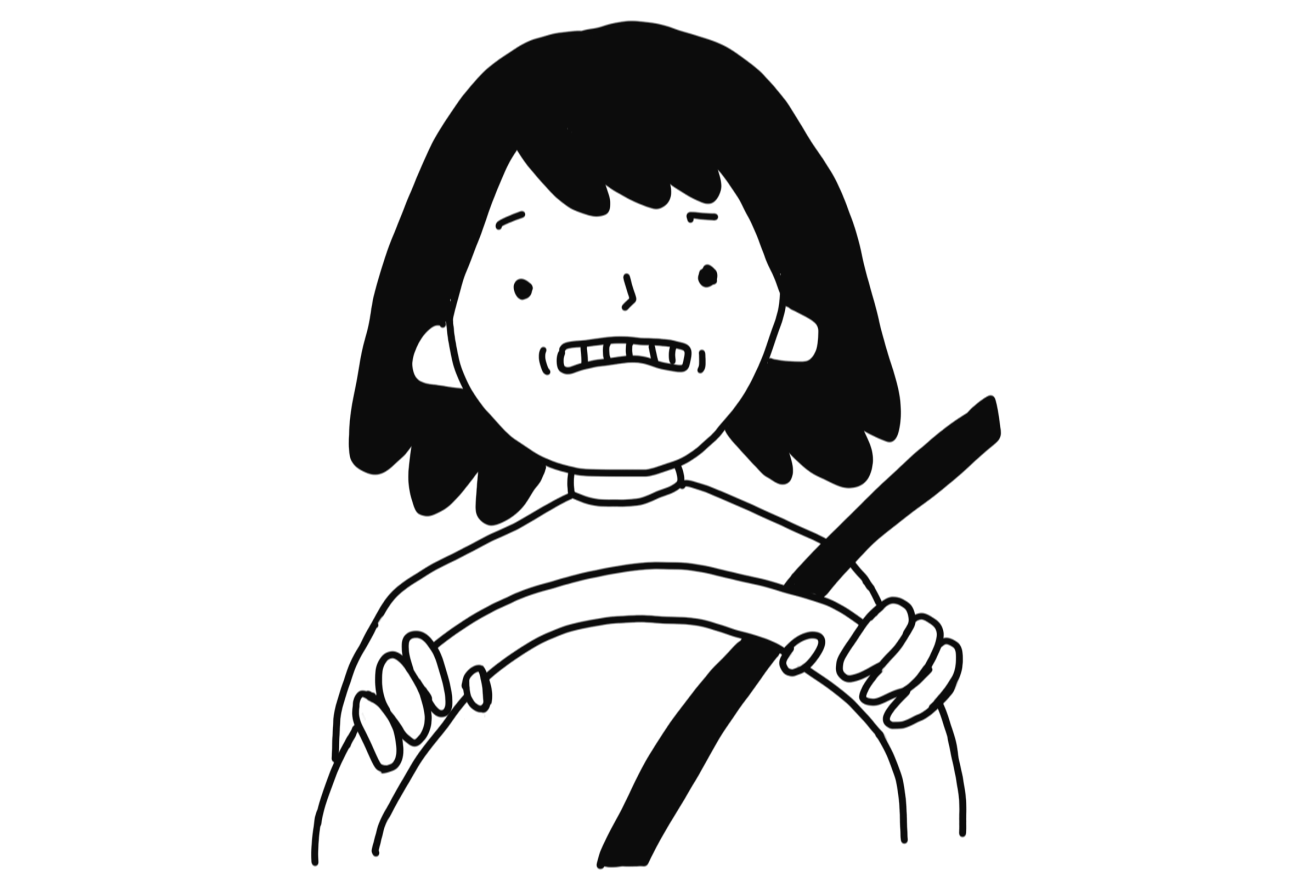
What Can Hold You Back:
- Expecting tangible results too quickly.
- Resistance to change.
- Fear of failure, feeling inept.
- Returning to old habits under stress.
- Having conflicting priorities.
- Lacking social support. Insisting on perfection rather than progress.
What Moves You Forward:
- Building good support systems.
- Prioritizing key activities.
- Focusing on action, not just outcomes.
- Addressing and overcoming obstacles as they come up.
- Celebrating small successes.
- Seeing setbacks as opportunities for self-discovery.
- Evolving your goals.
Stage 5
Maintenance
At this stage, you have already formed new habits as a result of previous actions. You are actively moving towards your goal. But this does not mean that there are no dangers left on the way. Boredom, lack of support (people are already used to the fact that you have changed, this is not something new for them), fatigue - as if you have been driving in a car on the highway for a very long time, and nothing changes around you.
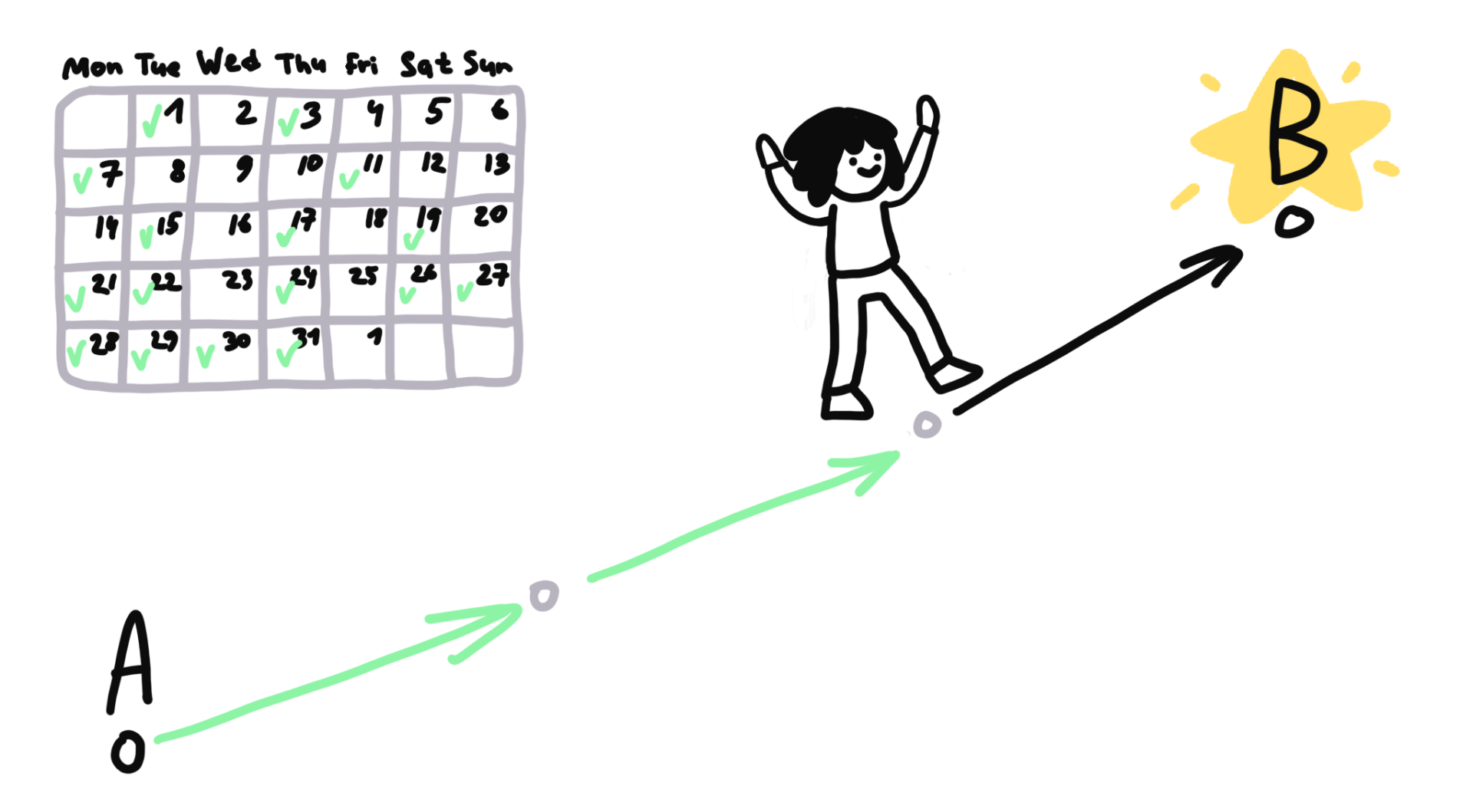
What you say to yourself:
The only mistake you can make at this stage is to give up all your achievements. Whenever you fall out of Action for long enough that there’s a question about whether or not you’ll be back on track tomorrow, you’re probably stepping out of Maintenance and back into Action, Preparation, or even Contemplation. Be careful and keep going, so as not to return to one of the previous stages.
- It's much better now than it was, but I want more.
- It's hard for me to move on. Maybe I shouldn't have started?
- How much longer? I can't take it anymore.
- I've given up so much already, so where is my dream life?
The only mistake you can make at this stage is to give up all your achievements. Whenever you fall out of Action for long enough that there’s a question about whether or not you’ll be back on track tomorrow, you’re probably stepping out of Maintenance and back into Action, Preparation, or even Contemplation. Be careful and keep going, so as not to return to one of the previous stages.
Our heroine has already attended a few classes and is starting to prepare for her exams.
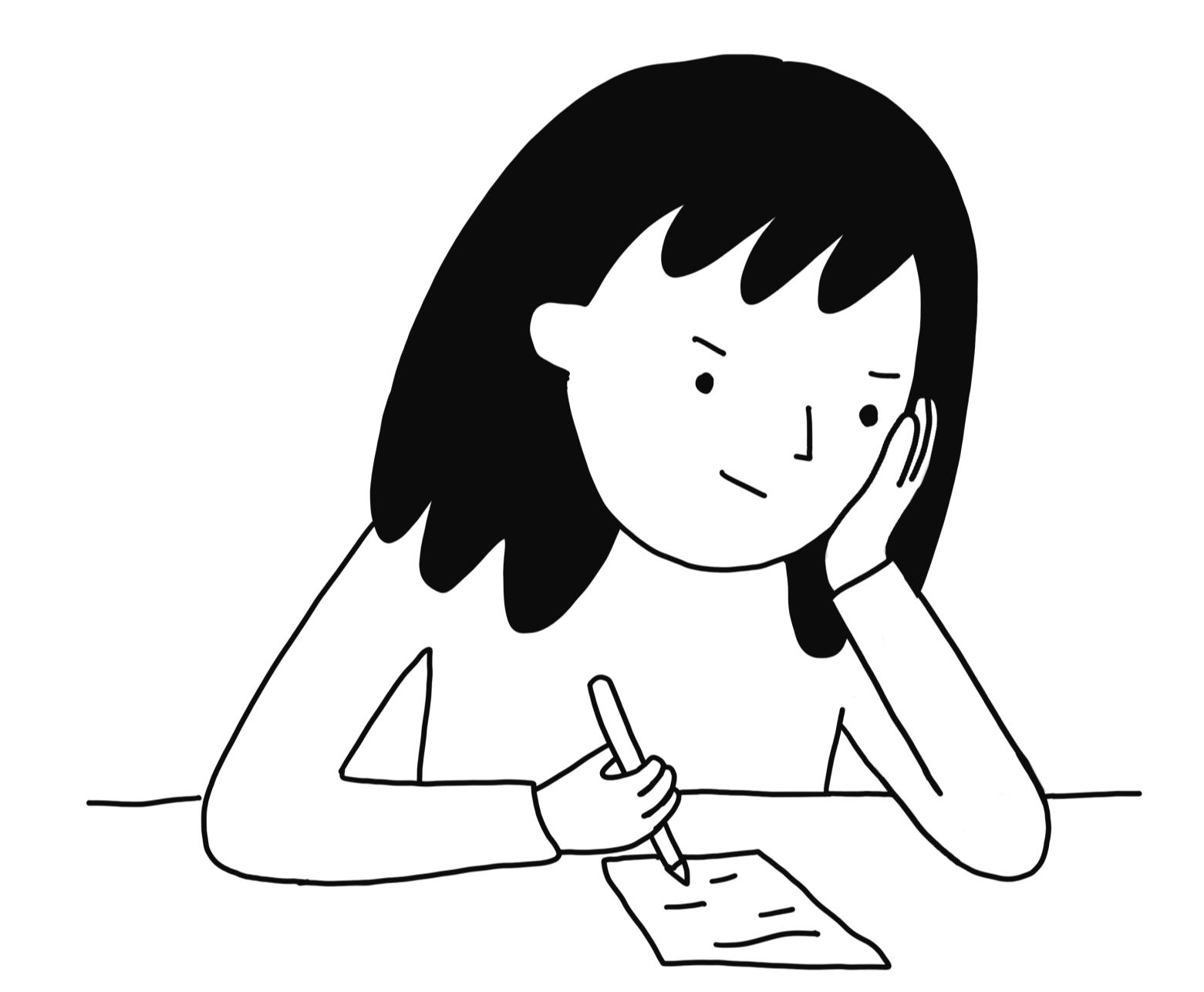
What Can Hold You Back:
- Hitting a plateau.
- Getting bored or distracted. Losing track of your original motivation after an initial success.
- An unexpected setback or injury.
- Feeling depleted, tired or overwhelmed by life events.
What Moves You Forward:
- Continuing to hone supportive and stress-management skills.
- Avoiding situations that could trigger relapse.
- Spending time with others who engage in the same positive behaviors or attitudes.
- Focusing on refinement, awareness, and mastery.
Stage 6
Termination (habit)
At this stage, you have already achieved significant results, and changed your life. Now you set yourself goals that you could not have thought of before, and successfully achieve them. You still encounter difficulties on the way, but you are confident enough to find ways to overcome them and not give up. You are enjoying life.
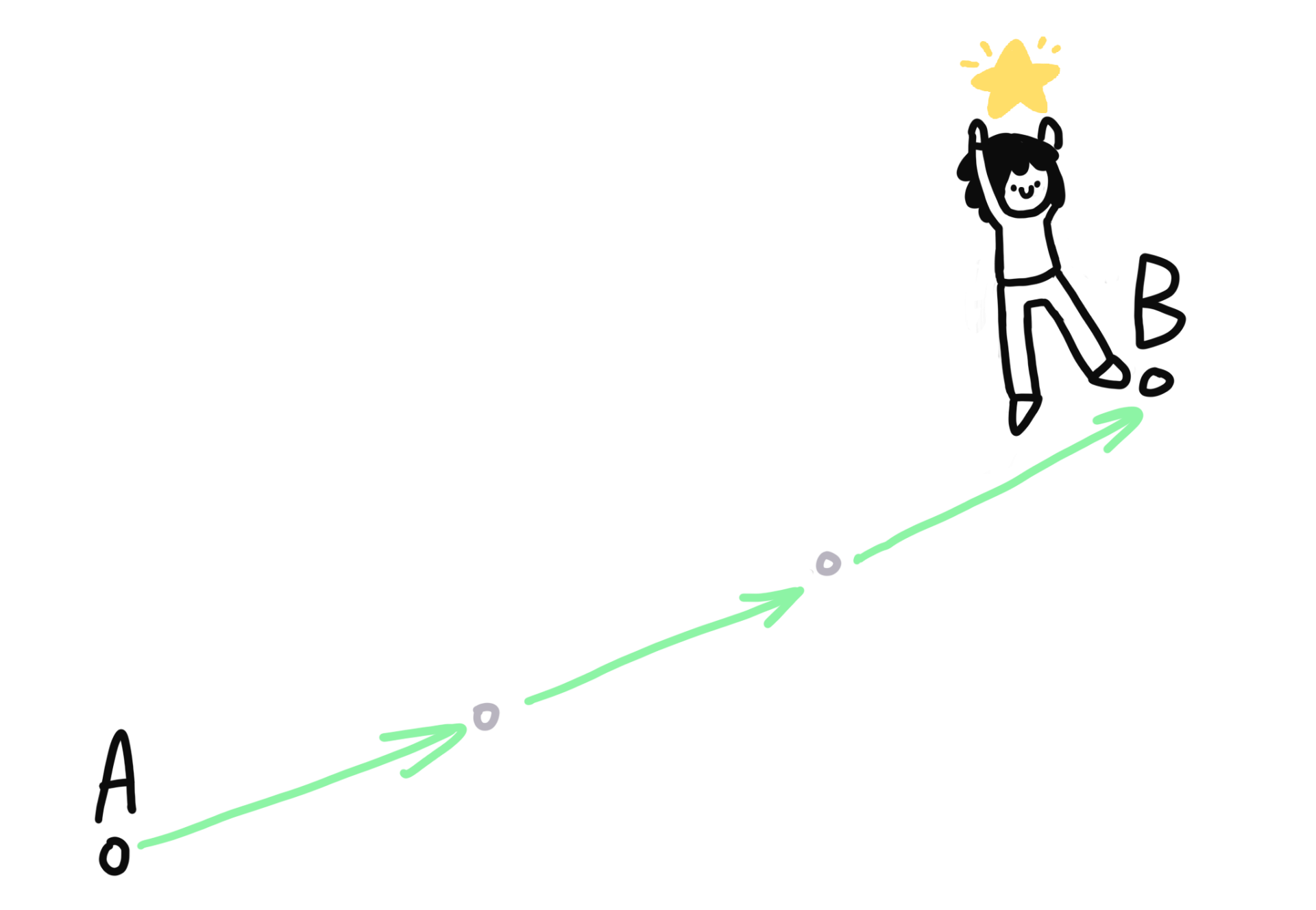
What you say to yourself:
This stage is worth it to start changing your life today. Gradually, step by step, without sudden movements, with a clear understanding of where and why you want to come.
- I wanted to achieve this, and I did it.
- The challenge is accepted.
- I like my life, and I know how to make it even better.
- I have everything in a new way, I don't want to do it the old way anymore, and I won't.
This stage is worth it to start changing your life today. Gradually, step by step, without sudden movements, with a clear understanding of where and why you want to come.
Yay! Anna finally got her driving licence. She will no longer take the bus to work.
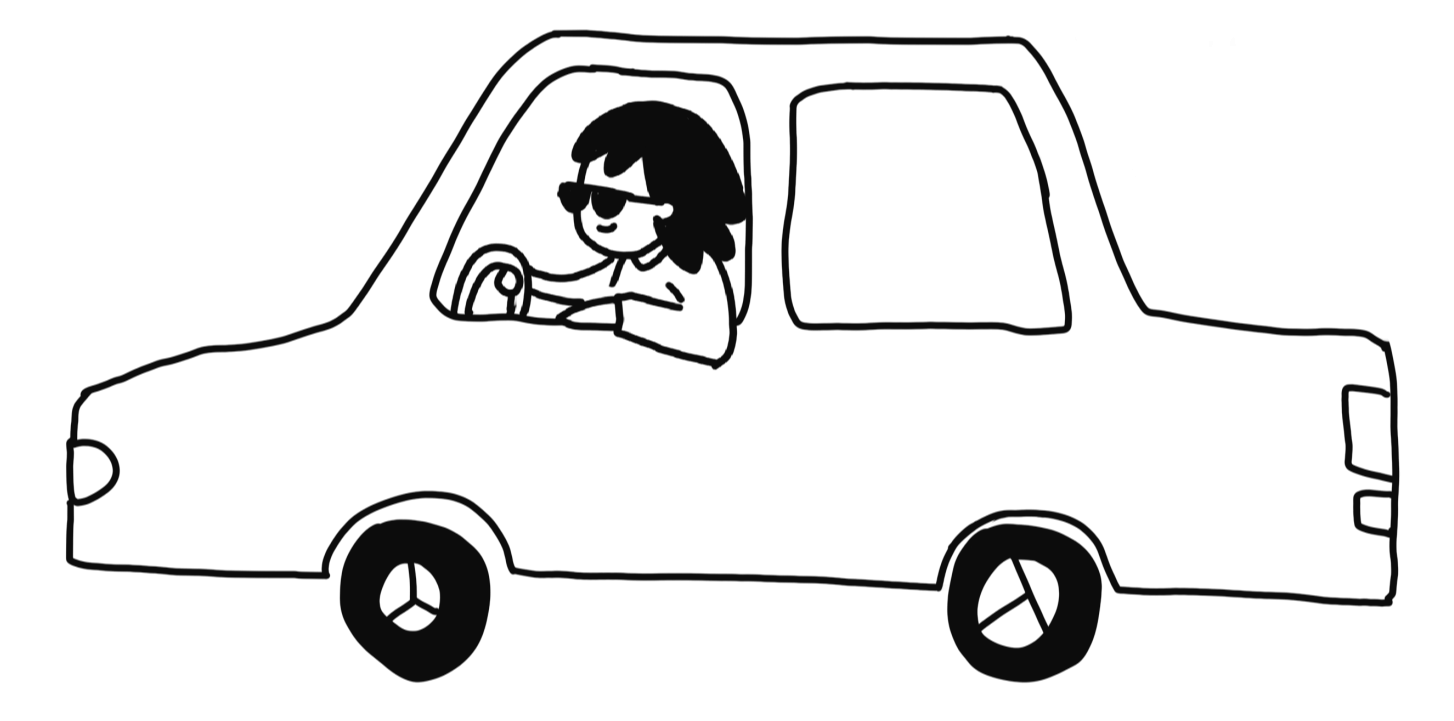
Conclusion
You now know a secret that few fully appreciate — that there’s more to creating change than meets the eye.
People often have to choose between doing something right away or doing nothing, but both options are usually not good. If they act without being ready, half will fail. If they do nothing, they'll continue an unhealthy lifestyle. A better choice is to start where you are, take small steps that fit your situation, and keep moving forward.
-
What do you want to change in your life?
-
What habit do you want to implement?
© 2026 TheSoul Publishing. All rights reserved.
